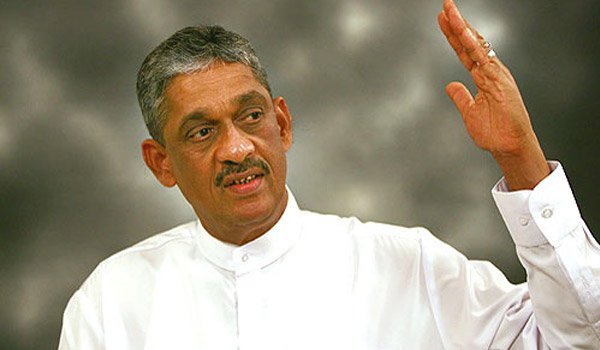Despite its physical beauty and wealth of natural resources, Sri Lanka has 5,676 outstanding cases of missing people, more than anywhere else in the world, apart from post-war Iraq.
Lampposts, schools, shops and crumbling buildings are plastered with colour posters of incumbent President Mahinda Rajapaksa from the United People's Freedom Alliance.
Despite a controversial record in office, Rajapaksa is seeking a third term in office, and it appears that state-controlled media outlets and government-funded publicity campaigns have already ensured he is likely to succeed.
One of the other candidates standing against him is Sarath Fonseka, a former army General until he was stripped of his title and imprisoned for standing as an opposition candidate in 2010. Foneska is something of a hero in Sri Lanka, credited with ending the bloody 30-year civil war, which crippled the country’s economy, shattered its tourism industry and caused tens of thousands to flee for fear of their lives.
We meet at his campaign headquarters, a small building which houses his operations team off the rain-drenched roads of Colombo. One only has to spend two minutes with Fonseka to recognise he is a man of accomplishment and experience, but he now also bears the emotional scars of his battle with President Rajapaksa.
Regardless of his previous suffering, Fonseka has found strength through politics and the support of his family to found his own political party, the newly formed Democratic Party of Sri Lanka.
As we discuss the state of play in Sri Lanka, he pauses, speaking in an authoritative but measured tone, listing the reasons why he does not believe the election in January will be either fair or free.
He talks about President Rajapaksa’s regime and its corruption, its lack of transparency and its total control of state media, which apparently never includes coverage of opposition candidates or their campaigns.
Fonseka wants external, independent authorities overseeing the elections to ensure votes are counted fairly, and to also end ‘intimidation at the ballot box’. His frustration at the country’s decline in recent years is evident, “We have no choice, we cannot allow the system to continue like this,” he says, with a sense of purpose that only an Army General could articulate.
He hopes that external governments, including Britain, will do more to put pressure on the President to ensure transparency and accountability.
Turning to his own personal experience of Sri Lanka’s sinister side, he talks frankly about his imprisonment and public humiliation at the hands of the current President. On 10th of February he was arrested by Military Police at his office, taken into custody and court-martialed for "committing military offences.”
“I was put into isolation in the prison and was only allowed to see my wife for half an hour every month,” he says with a look of sadness in his eyes. “They thought I would collapse under the pressure, they took my land, my home, my pension and denied me access to my family.” But Fonseka did not collapse, and is looking to continue his fight for justice for the foreseeable future.
“The President and his government have no agenda for the country,” he states, “This is Sri Lanka’s last chance to regain its national identity and rid the country of corruption.”
As I leave, Fonseka is heading to another meeting in his action-packed schedule, and it becomes clear to me just what a challenge he is facing to achieve the free and just Sri Lanka of his dreams.
But in spite of the odds stacked against him, Fonseka retains the energy and sense of duty that saw him rise to the very highest ranks.
(thecommentator.com)






